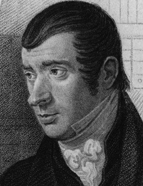

A man of multiple fields of knowledge and cultural interests, Liberato, a journalist, memoirist and historian, is one of the examples of 19 th - century figures characterised by his historiographical production with a strong ideological slant, which still indelibly conditions the vision of the 19 th century in the national scientific and cultural community. In this sense, he was a predecessor of Alexandre Herculano, Oliveira Martins , and Teófilo Braga.
Framed in a rich and varied cultural and institutional turning point, in which London and Paris affected domestic diplomacy and politics, Liberato – like Portuguese society itself – received influences that were only superficially contradictory. His political and historiographical alignments are similar to those of leading decision-makers, such as the future C ounts of Barca and Linhares and the C ount and M arquis of Funchal, apparently associated with French and English deals, but in reality conditioned by the elites and institutions that prevailed after the French Revolution, as well as by the responses that successive London cabinets were providing to Paris ’ Europeanising greed.
Liberato, fascinated by the culture, freedom of expression and freedom of the press that prevailed in conservative London (where he lived for several years), nevertheless nurtured Masonic and revolutionary (even Iberianist) ambitions, reflected in the pronouncement from Op orto on 24 August 1820 and the conquest of Lisbon on 24 July 1833. He also contributed greatly to the outbreak of these events and to the historicist account of their background.
A journalist and memoirist in exile, both in London and Paris and in besieged Op orto, José Liberato constructed a discourse where historical ideas go hand in hand with narratives of the journeys (not always dignified) of the figures and protagonists of Vintismo and the various Chartisms. Through his account of the past and the present he witnessed (especially the years between 1814 and 1834), Liberato left behind a picture of Portugal ’ s history after the 16 th century characterised by decadence, obscurantism and slavery, to which he also added the secondary status of being a British satellite, which even the regenerative ideals of the new constitutional regimes were unable to reverse. Giving men and their bloody civil wars an interpretation of the struggle of Good against Evil, of Light against Darkness , Liberato, the idealistic and teleological historian , is contradicted by Liberato, chronicler of his own time and memoirist of successive (and postponed) national regenerations. He saw the British alliance from the Treaty of Methuen onwards as one of the causes of decline, which did not prevent him from recognising freedom of the press following the British model as one of the factors of national progress.
This work is financed by national funds through FCT - Foundation for Science and Technology, I.P, in the scope of the projects UIDB/04311/2020 and UIDP/04311/2020.
